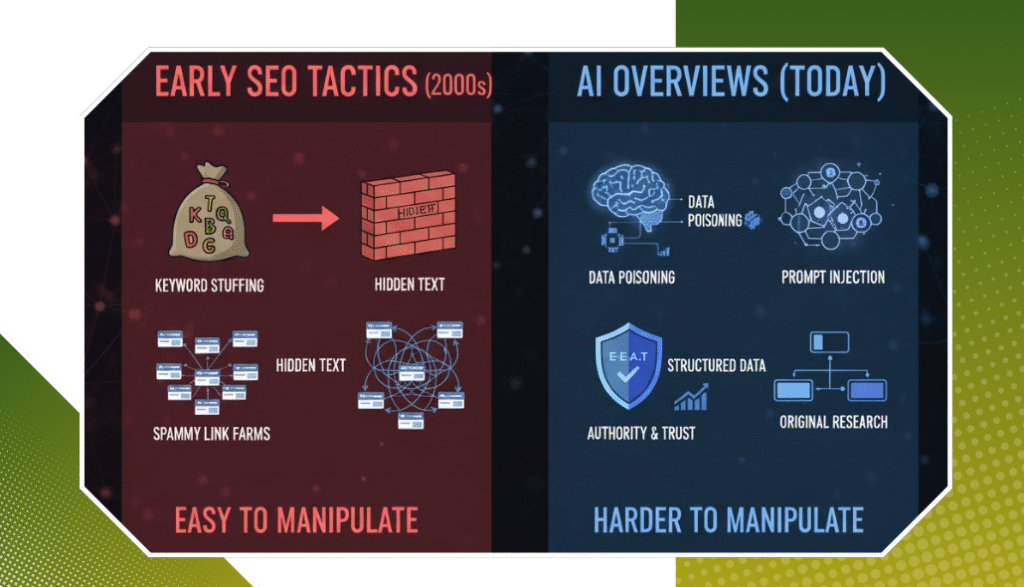The truth is that many searches now rarely result in website visits. If your content mostly answers basic questions, you might be losing traffic without realising it. But there are ways to adapt new strategies. In this blog, we will show you exactly where you’re missing out and provide strategies for adjusting your SEO approach.
The Growing Problem of Zero-Click Searches on Organic Traffic to Websites
Google zero-click searches are shrinking website traffic and generating new challenges for businesses that rely on organic search. For companies that rely on search traffic for leads, sales, or ad revenue, this shift requires new strategies to remain visible and drive clicks in today’s evolving search landscape. Here’s a clear explanation of these key impacts:
Lower Website Traffic
The consequences of zero-click searches include fewer customers and sales. When fewer people click through to your website, you get fewer leads for your business. It means that online businesses or stores see fewer purchases, and blogs generate less ad revenue from organic search results, which in turn impacts overall web traffic and engagement.
Example: A bakery’s “cupcake recipes” page, which used to attract 1,000 visitors per day, may now receive only 400 because Google displays the recipes directly.
Lower Engagement and Hurt Rankings
With fewer users clicking through your website, it reduces engagement metrics (such as time spent on the site and page views), leading to a decrease in conversions. For websites, Google notices when people spend less time on your site, view fewer pages and don’t return. It impacts SEO rankings, as these factors are considered when determining a page’s relevance and authority. Over time, Google may also lower your site’s ranking in results, creating a downward spiral that results in even less traffic.
Example: A local plumber used to get 50 calls/month from his “how to fix a leaky faucet” page. Now that Google shows steps directly, he only gets 20 calls, a 60% drop in business.
Challenges for Certain Industries
Industries like news, health, and local services that rely on organic search for generating traffic and revenue are particularly affected by Google zero-click searches. In sectors of news, health, and local services, search engines often provide direct answers (e.g., brief news summaries, health-related tips, or local business details) in the SERP, making it more challenging for sites to capture user attention and drive traffic to their pages.
Example: A health blog’s “flu remedies” post lost 50% of its traffic because Google now displays treatment tips directly using zero-click traffic and new features.
New Competitors Struggle More
Established sites still get some traffic from brand searches. But newer sites don’t have this brand recognition and can’t easily “steal” traffic from snippets, which means no brand recognition means no “brand name” searches. New sites need exceptionally high-quality content, such as creating 10 times better content (e.g., video tutorials or downloadable books) to compete with others.
Example: A new food blog posts “easy pancake recipes,” but Google shows the steps directly, so nobody clicks.
How to Adapt Your SEO Strategy for Zero-Click Searches
Now, it is important to adapt your SEO strategy to stay visible, relevant, and impactful without relying only on website clicks. Here are strategies explained for Google zero-click traffic:
- Focus on High-Quality Content: Ensure your content addresses more complex problems and directly answers user questions with clear, concise information.
- Optimise for SERP Features: Structure content to meet the requirements for different zero-click search features, including the use of structured data and schema markup.
- Track Alternative Metrics: Measure success by tracking impressions, click-through rates from featured snippets, and brand mentions instead of just website traffic.
- Adopt New Opportunities: View zero-click searches as an opportunity to increase visibility and engagement, even if users don’t visit your website. Get your content updated regularly.
Conclusion
Zero-click searches are reshaping SEO (search engine optimisation) and organic traffic dynamics. While it’s true that instant answers reduce clicks to your site, they also give you more visibility and engagement in search results. The solution is to create content that goes beyond simple answers, focusing on in-depth guides and providing users with a reason to click through. Adapting SEO strategies to account for these changes is crucial for sustaining long-term success.
At Rankingeek Marketing Agency, we’ve adapted our strategies to the evolving zero-click search landscape by optimising content for featured snippets, knowledge panels, and local SEO. Our SEO experts can analyse your site and provide customised solutions to ensure your sustained growth. We focus on aligning content with user intent and providing direct answers, which helps maintain visibility and engagement. Contact Us Today!




